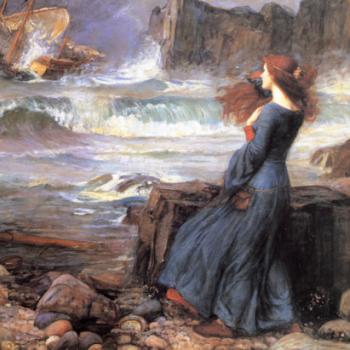He is a ghost, not a musician, old Jacob Marley, but his message, though less prominent on Google is more important to our times.
Jacob Marley confronts a materialist comforted by his materialism. Scrooge lives in little world, one where death ends everything. Nobody is keeping score and so if Scrooge believes he is winner, then he wins. Marley finds him hard to convince, as even his senses will not break his materialist fantasy.
Ebenezer Scrooge cannot afford Jacob Marley, because if the dead are not unaware and gone, then his entire life calculus will be bad. Scrooge is not a miser so much for money’s sake, but for victory over powerlessness that comes with poverty. He is safe, but if the dead are aware, then no amount of gold can save him from spiritual poverty and the rule of God.
Marley explains what God made man to do and that men must do this task in death if they will not do it life. Men are called to love their neighbor and will love their neighbor either voluntarily or involuntarily. Hell is the incessant torture of remorse and it is too late to escape it when death is gone. The damned serve God, but not to their own profit. They have lost liberty to do good.
Most Americans do not live for money and we despise, rightly, those who do. We recognize the misery of misers. The man who oppresses the poor has no friend in Christianity. Greed is not good, no matter what Ayn Rand writes.
I don’t think we escape powerlessness (mostly) by money, but by amusements. We eat, we drug ourselves, we drink, we watch video, and we natter on line. What we do not have to do is think, fellowship, in engage in long term acts of service. We text our gift to charity and then go back to watching cat videos on You Tube. We hoard films and shows on our Netflix queue the way Scrooge hoarded money, lest a moment without amusement ever comes.
We are empowered by the large reservoir of books downloaded on our Kindle or the stories in our reader. We will use every moment of time as we will and so instead of being part of the world of charity we are prisoners chained to our amusements.
Scrooge used money to hide from spiritual reality, from the poverty of soul that was coming, while we use the X-box. As a good American, I fear I care less about money and more about the amusements it can buy. The workaholic that labors without any amusement is a figure of fun. Scrooge is foolish to be in his counting house on Christmas Eve, but we are not eager to go to Nephew Fred’s party. People that we must love and whose refusal to agree with our will intrude on our pleasures. We keep them distant and are only a step from the inhabitants of the good ship Axiom in the prophetic film Wall-E.
If Marley came to me, he might have to prove he was not a Disneyland effect and then point to the chains he forged in life: televisions, iPads, iPhones, Wii-Us, and e-readers. We did not walk out in life to do charity, because we sat in our dens with the windows drawn. The ghost of Marley would rip them open to show us the loneliness and poverty all around us.
And so I stop writing to go find a fellow employee to help, to cheer, to know. God help us, everyone.












